|
Right so, I’ve been informed by my most favorite students, that my blog has been lacking humor. Everyone’s a critic. In response, I asked them to write my next blog entry, shockingly, they did not jump at the chance to exercise their grammar and narrative skills, instead they simply provided me with story ideas (I say ideas, but really I mean complete nonsense, incomplete thoughts, and other things that would make no sense for the reader). What follows is my interpretation of what they shared with me about their day and what they felt I ought to be including for our readers to enjoy. I’ve done my very best to provide some context but my dear reader, keep in mind, I’m with 11 teenagers. I want to immediately throw some individuals under the proverbial bus because not all of the group can be blamed for this entry, since only “Dishpiration” was included in the discussion. Each night we get divided into the Dinner Group, Quest for Knowledge group, and of course, Dishpiration. While the Dinner Group is cooking and the Questers are preparing our after dinner presentation, Dishpiration is supposed to be journaling. We transformed our journaling activity into blogging. The group being Richie, Ellie, Carter, Bridget, myself and of course, the elusive but deadly snowball thrower, Mr. Hurley. Mr. Hurley truly was the star of the day. He not only “destroyed” Carter Cooper in a snowball fight (please see video evidence to back up this outrageous claim) he also taught us about a new vegetable, the varsatona. So, the next time you are playing the alphabet game in the car with the category of vegetables, and you have to come up with a V vegetable, now you know, varsatona. It might be a root vegetable or perhaps a leafy green, but Mr. Hurley was lacking in specific detail, so we are still not sure. Mr. Hurley also made quite an impression on Richie, apparently, they bonded over flossing. Through Mr. Hurley’s coaching, Richie has not only learned why one should floss, but also the proper technique. In return for this secret knowledge that many seek but few find, Richie destroyed Mr. Hurley in aforementioned snowball fight (there is no video evidence of this, so we have only his word, Mr. Hurley vehemently denies the claim). Wolf watching day is an early start day, so we had to be up by 5am. Unfortunately, someone does not know how to set an alarm correctly, and that same individual (who shall not be named in order to ensure their safety now that they’ve entered the Witness Protection Plan but for this story I’ll refer to them as Miss Knoll) woke us all up at 4am. This had the unintended consequence of depriving Ellie of so much needed rest, that she was incapable of speaking in anything but an Australian accent for the rest of the day. When questioned about this magical occurrence, she responded, “I’m giving the people what the people wanted.” Actually what we wanted was to sleep an hour later, but Ellie talking all day in an Aussie accent is almost as good. If you recall from a previous posting, we met with Rick McIntyre, the wolf expert. Carter quipped, “Rick was sick.” For my readers over 40, let me help you, Rick does not have tuberculosis or a fatal disease. He was awesome and interesting and cool and quirky. Otherwise known as sick. He also hinted I might make a good cougar (I’m really hoping that was a Yellowstone reference since the big cats are known to inhabit the northern territories of the park) and that if they make a movie about the wolves of Yellowstone, that my part could be played by Sandra Bullock. Yes, I’m afraid I must agree with Carter, Rick is sick. On our way to the most important part of the day, we chased a coyote down the road and had the delight of watching him “do the thing.” You know, that thing coyotes and foxes do in the snow to get prey. Just picture it in your mind, you know what it is. It’s the thing. And it’s awesome. We got to see it from 20 feet away. Yep. In case you don't know what the thing is... The day ended as any good day should end, with a wedding! Jackson and Bridget got married with the entire crew (Paul, Emil, Richie, and John as groomsmen; Kylie, Carter, Audrey, Natalie, and Ellie as bridesmaids) sharing the joy of their winter wonderland wedding. Okay, okay, none of these kids got married, but our good friend and guidance counselor Miss Ann Bixel did, so we recreated a little scene to congratulate her from afar - we hope her tropical Florida wedding was much warmer than this one. All in all, it was a pretty rocking day. We crushed it.
1 Comment
Two days ago, the students had the unique opportunity to meet with Dr. Chris Geremia, a bison biologist with the National Park Service. Dr. Geremia came to our lodge and met with us after dinner to share a little of his story and the story of Yellowstone’s bison. He fielded lots of questions and engaged all of us with his passion and commitment to bison. Did you know that in 1902 there were just 23 wild bison left in Yellowstone? Bison have roamed this land since pre-historic times but modern humans almost drove them to extinction. An intensive management plan has returned their numbers to over 5,500. While this might sound like a success story, there are critiques who say there are just too many bison leading to the bison migrating out of the park and creating conflicts with ranchers and other landowners. There are concerns about the spread of brucellosis to livestock and on the hazing and culling of bison, the national mammal. You can learn more by listening to this podcast that explores all sides of the bison issue. Dr. Geremia and Ecology Project International arranged for our students to spend two days in the field with members of the bison research team (Anna, Beth, Carly and Owen). Students learned about the research projects, field protocols, data collection, and most importantly, spent time with scientists learning about their work. These scientists were so open and sharing with our students, they discussed colleges, majors, job opportunities, different career avenues in environmental science, biology, wildlife ecology, and natural resources. Also, they were just superbly cool to hang out with on a bitterly cold, windy day in Yellowstone National Park even if we were collecting poop samples. Really, we hunted down bison and deer poop or scat as we like to say around here. You can learn an awful lot about an animal by investigating it's poop - what it ate, it's hormone levels, you can even do a DNA analysis! This morning, we met up with Yellowstone superstar and wolf expert Rick McIntyre as the dawn broke over the Lamar Valley. Rick and his team (affectionately referred to as the wolfies) head out every day to track and observe the wolves of Yellowstone. We tracked him down at one site where he began to debrief us on the radio telemetry technique they use to find collared wolves. He shared some wonderful stories of wolves, the step dad who defended his adopted pups against much stronger alpha males, the strong female who took down a grizzly, and the sisters who ruled enemy packs. News came in that wolves had been spotted at Slough Creek, so we headed over there and sure enough we got to watch a black juvenile wolf chewing on a bison skull near the pack’s den up on the ridge. Here’s an opinion piece that gives you a real sense of Rick and his passion for wolves. By midmorning, we headed to the northwest corner of Yellowstone to learn about snow science. After snowshoeing in to a beautiful clearing, students dug snow pits to learn more about snow. It turns out snow science can help ecologists understand how animals live under the snow while being hunted from above and snow science can help predict avalanche risk. Students learned how to measure depth, density and hardness of snow. We wouldn’t be Pirates if we didn’t end a lesson on snow science with a snowball fight. Day 2 of our Yellowstone adventure was spectacular! We left the lodge and headed in to the Gallatin National Forest in Jardin. The drive up the mountain was beautiful: Once we reached the trailhead, we needed to get everyone in snow shoes and teach the basics. We didn't have too many experienced snow shoers in the group, so it took a little work to figure out how to get them on and an effective technique that hopefully involved not tripping over your own shoe. It didn't take long for everyone to get the hang of snow shoeing and after just a few minutes of practice we headed up the trail. Out on the trail was gorgeous, and we spent a couple of hours enjoying nature. Here's a peek at what it was like: While in the field, the students were learning a ton about the Greater Yellowstone Ecosystem. Today’s focus was on tracking – spotting tracks, collecting data and measurements about tracks, and determining what tracks can tell us about the animal(s) that passed through. But we also learned about food webs and ecosystem functions. Students discussed trophic levels, predator-prey relationships, animal migrations, and the interactions of biotic and abiotic factors. On our drive, we discussed the differences between National Parks and National Forests and also started to explore the issue of bison leaving the park and what is being done with those bison. Students have started to formulate some of the questions they want to ask the scientists they will meet this week studying these animals. We finished our winter wonderland hike with an epic snowball fight that ended in what has to be one of the greatest white-outs ever caught on camera. Oh yeah, they also made snow angels because how can you not make a snow angel in fresh powder?
From sea level to a mile high and from 75 degrees to 29 degrees in 1500 miles is a whole lot of difference! As our Ecology Project International Guides welcomes us to Montana, the wind was blowing through the Paradise Valley along the Yellowstone River. Maybe it wasn't as welcoming as our guides - notice the shivering, foot-stamping and huddling: After being outside for less time than most of us spend brushing our teeth, the kids were chilled to the bone. We let them into the lodge where they started to thaw out a bit. You can see they made themselves at home pretty quickly. So what's the plan for tonight? Well, since we've all been up since before 5am this morning, the energy level is waning and I'm predicting an early bedtime so we are ready to take on the wilderness tomorrow! But despite the lack of sleep, students are already busy, some are learning about tracking and preparing a presentation for after dinner, another group is studying the journaling of previous EPI participants, and the last group is busy cooking up a feast for us in the kitchen. And by now some of you might be wondering, where is Mr. Hurley?? No worries, he's working very hard. Next time I write, it'll be about our first foray into Yellowstone to learn how to snow shoe - I have no doubt that will be an excellent photo op.
Sleep tight Pirates! We are just days away from heading to Yellowstone National Park and meeting up with our Ecology Project International guides and scientists to study mountain lions and ungulates, all while experiencing the glory of one of the most wild lands in America. Eleven students and two intrepid teachers will snowshoe across the northern regions of the park to collect data for scientists and the National Park Service as part of ongoing research projects designed to understand and protect our greatest American treasures and resources. The United States has some of the most diverse and awe-inspiring landscapes of any country in the world, filled with wildlife and nature that is nearly incomparable. Our federally protected lands - National Parks, National Forests, Landmarks, Monuments, BLM lands, Preserves and Management Areas are one of our greatest national resources promoting biodiversity, providing valuable ecological services that give us clean air and water, and offering us resources in the form of food, medicines, and building materials.
These adventuresome students are ready to experience the great outdoors and commit to being one small part of the future of our public lands. Now more than ever, we need to protect the sanctity of our amazing and special natural resources so they are here for generations to enjoy into the future. So travel with us via this blog as I post live during our expedition to share stories, insights and photos. If you plan on following us during our trip, comment below about what you'd most like to see a photo of and we'll try to make it happen! It's a new year! And this one is going to be busy, but also full of exciting adventures. 2016 ended with a bang for me when National Geographic chose me as their Educator of the Week. Click below to view the blog and my video. Like a pro athlete, teachers need a structured conditioning plan to stay at the top of their game. In education jargon, it's called Professional Development. But I prefer to think of it as mind and skill expansion. I have to renew my National Board for Professional Teaching Standards Certification in Biology this year, so that will require me to do some deep thinking and examination of my craft. That's code for I'm going to have to design some exceptional lesson plans, implement them, and write a 100 page paper all about it. Oh yeah, and I have to video the whole hot mess. The good news is students are always supportive and exhibit their very best behavior during these highly stressful events. But I'm ready for the process because I've spent this past year as a Teachers for Global Classrooms Fellow (I only cried twice), presented at a teacher inservice (no one booed me) and earned my National Geographic Certification (and I never even had to take off my top). I've been upstyling my teaching all year, now I just need to cement the implementation, analyze the data, and explore the impact.
I find many of my colleagues roll their eyes when the topic of professional development and training comes up. And to be fair, I have attended a fair number of mind-numbingly terrible workshops. Picture a trainer flashing the lights to quiet everyone, or requiring everyone to clap in affirmation everytime someone "shares out." Or how about the workshop where you were required to start every sentence with either "what if" or "how about?" How about you refund the $300 I paid for this workshop?? This is why I believe it's on you to find the best opportunities to build and develop your skill set. Every year I seek out opportunities to experience new ideas, places and people so I can engage my students with current, relevant, and valuable information and opportunities. So with that in mind, I'm hoping for a few workshops that might address some of my weak areas. I've come up with a list of potential workshops that might really help me out: 1. How to build your own tech jammer device - those kids will be looking up now! 2. How to teach on 600 calories a day (plus coffee). 3. Harnessing the lack of power from sleepless nights. 4. Use date-driven practices for sharing your flu virus with the whole class. 5. Teaching students how to compute their grade when you use percent categories. 6. Navigating the parent teacher conference you never wanted to participate in to begin with. 7. Learn how to write comments that say so much without saying much at all. 8. Make instructional videos with snapchat filters to engage students. 9. How to teach for a week using nothing but internet memes. 10. Yes, you can tweak the space time continuum to increase the amount of time in your day! How do you want to grow professionally this year? What branches need to be added to your tree? I’m not a particularly good blogger, I don’t blog every week and release it on the same day to “capture my readers.” I don’t really have a consistent theme, I pretty much stream-of-conscious comment on whatever peaks my interest in the moment. Basically I poke fun of myself and my peeps to give you a good laugh, and sometimes trick you into learning a little sciency something along the way. I don’t have apps that automatically release FB postings and tweets to advertise my blog with catchy titles and questions that mislead people into clicking on the link. And I’m certainly not putting ads on my site to try and make money off of my silliness. I just say what I say and some people are interested and read it. Very rarely, someone comments. And I’m like, awesome, one person read my blog and their neurons fired in response!
But today, I’m blogging about something really serious. We, as a people, need to really rethink social etiquette. There was a time when people regularly kept their thoughts to themselves because they recognized sometimes saying things out loud actually creates a worse situation. Your words don’t always convey exactly what you meant, or maybe you’re trying out a thought, super dangerous, don’t do that out loud because you can’t redact words from someone’s memory. Words that are perceived as hateful, mean-spirited, bigoted, angry or whatever other negative connotation you come up with have a tendency to sear themselves in people’s brains. Those people won’t forget what they think they heard you say. As someone who travels the United States and the world, there are lots of regional and cultural norms that people carry with them and can lead to misunderstandings. Conversations can get heated quickly and people talk faster than they think, things spill out and the listener isn’t hearing or including context, people start talking over each other, you can imagine these situations, you’ve probably experienced one. I feel like social media has become a giant version of that awkward political conversation someone starts at what was a really nice social event, everyone gets upset, partisan combat ensues, and all the guests leave early and mad. Then the hostess finishes off all the open wine alone looking at the dessert no one stayed to eat. This morning, as a scrolled my FB newsfeed, I was appalled by the comments in response to the recent shootings of black men and police officers. Every one seems to be taking a side. What side?! People are getting killed. That means they are gone forever. They will never finish what they started. People will be bereft without them. Children will be fatherless. They have been ripped from their futures. The only side to take is to end this nonsense. And that is not going to be easy, because we would all have to stop being hypocrites (at least in our actions if not in our thoughts, yes I just said that and I am talking about you and me). The answer to this problem cannot be found among black people or white people, it cannot be found among citizens or police officers, and it certainly cannot be found among Republicans or Democrats. The solution is in every human’s brain (for some of you, you might call it your heart, but I have a degree in neurobiology so...). We ALL have to change, the way we act, the way we speak, the way we think, the way we perceive, the way we make judgments - we have to change how we interact with each other. And we all need to accept accountability for what we do and what we say, every minute of every day because it matters and it has consequences. And we need to listen more, really listen, and question people about things they say because maybe we don’t think so differently, maybe we’re just not using the same lingua franca. Maybe we aren’t aware of shared experiences because we’re assuming we don’t have them. What if we do? Wouldn’t that give us common ground to walk on together? And wouldn’t it be really nice if we could all just be in this whole thing together? I posted the following on FB this morning in response to much of the hate I saw, I’m sharing it here as well because I really believe in this message. Question yourself, your thoughts, your words, and your actions always, because it’ll make you a better person and the world a better place. Posted on FB July 8, 2016 Sometimes I'm shocked by the reactive and thoughtless behavior of the people in my life - I'm talking to you. When horrific events take place it is our job to think before we speak or post. The greatest people in history are not those who spout silly rhetoric and shout absurd nonsensical rantings, they are people who recognize situations are complex, people have multiple perspectives, nothing is as simple as it seems, and every one of us is a human being. So some thoughts for you to consider: 1. We ALL need to do better. Every day. We all need to be good citizens, obey the law, help other people, and actually care about other humans. 2. When someone kills someone, THAT person is responsible, not a whole group of people, or the President, or the entire police force, or anyone else. So be angry at THAT person. Question why THAT person committed a terrible act. 3. Every once in awhile as you're living your charmed life, and trust me, it's charmed because you woke up to an alarm, in a house, with your family, to go to a job, and you'll eat three meals today, remember that your view of the world might be different than someone else's, just try to imagine having none of what you take for granted. Then experience that wave of gratefulness that washes over you. 4. Discussions and dialogue can be powerful only if the thoughts conveyed and the words used are meaningful and purposeful. Action and problem-solving is even better. YOU are part of the problem if you aren't part of the solution. Ranting on FB is not taking action, go volunteer in your community, become a teacher, run for office, mentor a kid, donate to a food bank, do SOMETHING. 5. Think of the smartest and kindest person you know, imagine their reaction when they read your social media post or hear your rant - is that really how you want people to see you? 6. Before you hit Post, reread what you wrote, ask yourself, are you sharing something insightful, is someone going to be hurt by your words/thoughts, do your words actually convey what you meant? 7. And finally, stop with the memes that are full of factual errors, nonsensical garbage, and thoughtless, hateful speech. Just because someone shared it doesn't make it true. The first step to making a better world is for you to be a better person. We are all in this together, so we can be good to one another or we can make life miserable for all of us. Totally up to you. 13. Bonjour! Bonjour! Ca va? Ca va bien. Et tu bien? Bien! If there are ten people in a room, you must walk around and shake hands and exchange greetings with each individual. When five people walk into a room with ten people this can last awhile. Oh and repeat with goodbyes when leaving, allow 20 minutes to leave any room or place. Did I mention photos?? You’ll need to take photos with every person’s cell phone. 12. There is no such thing as time. And everything takes longer than you think (see above). You can’t really hurry when it’s 105 degrees. 11. You are not entitled to electricity, water and wifi at the same time. If you have two out of three, life is great. If you have one, life is good. 10. Always, and I do mean always, carry toilet paper on you. TP is more valuable than currency. Trust me on this. Oh go ahead and keep some wetwipes on you too. 9. It’s not hot. Unless the Senegalese are saying it’s hot or il fait tres chaud. Then it’s 112 degrees. 8. School is only canceled for one of two reasons: the teachers are on strike or the classrooms have been invaded by snakes. Just another day in the Casamance. 7. Everyone looks good in a nice coat of red dust. If you’d like to really do it up right, ride with the car windows down…or on a donkey cart or a moped. But probably you’re walking. That’ll work too. 6. You should definitely bring a Lifestraw with you. You won’t actually use it because it would insult your host, so you’ll just drink the “sweet” water from the well. But you’ll feel so much better having that Lifestraw in your bag in case of an emergency. It was an emergency, you missed your chance. 5. Malaria isn’t scary, you’ve got pills for that. It’s the Dengue and West Nile you need to worry about. And if you’re American, those mosquitoes are looking for you. 4. Sweat soaked clothes are a fashion statement. Not a particularly good one, but it’s a look that you can achieve several times per day. 3. You like your knees. Your significant other likes your knees. Senegalese do not like your knees, cover them. 2. When a vendor tells you a price, offer half of that and feel good about your haggling skills. Then your host teacher will let loose a string of Pulari and next thing you know you’ll get money back. Give up, you’re an American, you can’t haggle. 1. It is best not to ask what you are eating – just put it in your mouth and hope for the best. It always tastes good and there’s like only a 50% chance it’ll make you sick. And finally: Africa will change you. Possibly by gifting you with spider eggs laid under your skin or a string of beads around your belly, but more likely because the people are welcoming, innovative, strong and full of dreams for the future of their beautiful land and culture. These are a people who want better for themselves and their families, they are committed to becoming global citizens that contribute to the betterment of the world. What have you learned in your travels? Comment below and remember a sense of humor is universal! We have arrived in Kolda, in the Casamance region of Senegal south of The Gambia. I hopped a small plane from Dakkar to Kolda. Our pilot was a french Prince Harry lookalike and our co-pilot was a Jessica Alba impersonator from South Africa – quite a flight crew! There were no flight attendants, but the copilot did turn around and indicate where the emergency exit was (the door we came in) should there be an “incident.” The flight was smooth sailing with beautiful views of Dakkar, the Gambia River and Casamance. We landed on a sand covered tarmac about one hour later. In the small cinderblock building, a man collected our passports and entered our names into a logbook. Our host, Fanta Fofana (you will find her in many of the pictures I’ll post) was waiting for us with her family. We milled around the building waiting for the "ground crew" to carry our bags from the plane to that porch you see in the picture, the African version of a luggage carousel. We hopped into the car with the men while Fanta hopped on her motorbike and took off down the dirt road ahead of us in her bright pink Senegalese dress. I didn't capture a picture of her but here is a street view of Kolda. Our hotel has A/C and wifi, although neither work quite as they should. As I type, I’m tucked under my mosquito net and I will likely need to head down to the open air dining area to have enough wifi signal to upload this blog (update: I'm under the thatch roof dining room and opting for small picture sizes to reduce the upload time, also I'm worried the power might go out soon). My A/C quit in the middle of the night, so I slept under the net with the windows open listening to the sound of insects and birds I cannot name and the voices of revelers out in the street. It’s over 100 here, so it’s on the warm side to say the least. And I've just discovered there's no running water. I'm sure it'll come back on some time today..... or maybe tomorrow. Below you can see my bed, or my command center since if I'm in my room I'm probably hiding from the bugs in there. Also you can see the dining and pool area of the hotel. The picture makes it look quite lovely, but you know what they say about looks. After checking in, Fanta and her husband took us to meet a number of very important people including the Education Inspector for Kolda, the Colonel of Kolda, the Secretariat of the Forestry Service of Casamance and the Director of the Research Institute in Kolda. The Colonel attended a military school in England and had visited the USA twice, so his English was excellent. We had a lovely chat in his beautiful and very large office with a chilling AC. The military compound was well-maintained and probably the most attractive building in Kolda. The colonel had a soldier take pictures of all of us and indicated he would send us the photos – so here’s hoping but in the meantime I was able to snag one with my iPhone. In an attempt to be culturally appropriate I delivered Poinsettia Groves (located on US 1 in Vero) orange and key lime jellies to each person we met. My suitcase will be much lighter on the way home! I feel somewhat incapable of finding the words to describe this experience. Everything is so different here, the buildings, the streets, the sea of humanity, the trash, the heat, and the lack of clean water but at the same time so much is the same. The people talk of many of the same problems that we have in the USA. Educators talk about access to education for all children, improving the quality of the education, and getting more students to college. The scientists talk about diseases that impact their livestock and crops, breeding resistant plants and animals, and training farmers on best practices. The forestry service is dealing with logging and poaching, determining best management practices, and training people to use the forest sustainably. These could practically be headlines from our local and national papers.
Stay tuned for upcoming blogs on Sleeping Sickness in cattle and Sustainable Forestry Practices. Imagine the voiceover guy, "Liiiiiiiiiiiiiiiiiiiiive from Dakkar, Senegal - it's the Monarail! After almost 24 hours of travel, I have reached my first destination, the King Fahd Palace Hotel. My world travelers, or those of you that want to be world travelers, I have a recommendation. Purchase the upgrade for your flight - any upgrade that gets you a smidgeon more legroom because while everyone else will walk off the plane wilted, you'll hit the tarmac feeling like a princess. Of course it's hard not to feel amazing when you've just flown across the Sahara Desert at sunset. Attention Honors Biology students, identify and briefly describe one plant or animal that can be found in the Sahara desert, pay particular attention to any special adaptations they might exhibit. Be sure to make sure you are not duplicating someone else's organisms - no repeats! We flew in to Senegal on their Independence Day, so the flight crew welcomed us in traditional dress and sang their national anthem. It was a really special way to begin our adventure in Senegal. In fact, tonight we are meeting with a tailor who will be making us traditional Senegalese clothes from their famous fabrics to wear during our time here. It should help keep us cool in the 105+ degree temperatures we'll be experiencing and also honor the cultural traditions and norms of our hosts. The very first thing I noticed as we walked across the tarmac in Dakar was the smell of the salty ocean air - it reminds me of Maine. And there are palm trees everywhere which is much like Florida. What a wonderful combination of my favorite places in a land so far from both - it is extraordinary. The hotel is located on the Atlantic and I have a lovely view of the ocean from my room. Below you can see the beach and the city, it is currently about 70 degrees and breezy. A wonderful respite from the heat I will be encountering when I travel to Kolda in a few days. Stay tuned!
|
About this Blog:I am a former Teachers for Global Classrooms Fellow, a program of the U.S. Department of State. I have completed graduate level training in Global Education and traveled to Senegal in April with the program to explore their educational system. This blog is a piece of the global education guide I have created to support other teachers and students in globalizing their classrooms. My focus area is life and environmental science and understanding the interconnectedness of Earth. For more information on the fellowship please visit the IREX website. Archives
March 2017
Categories |
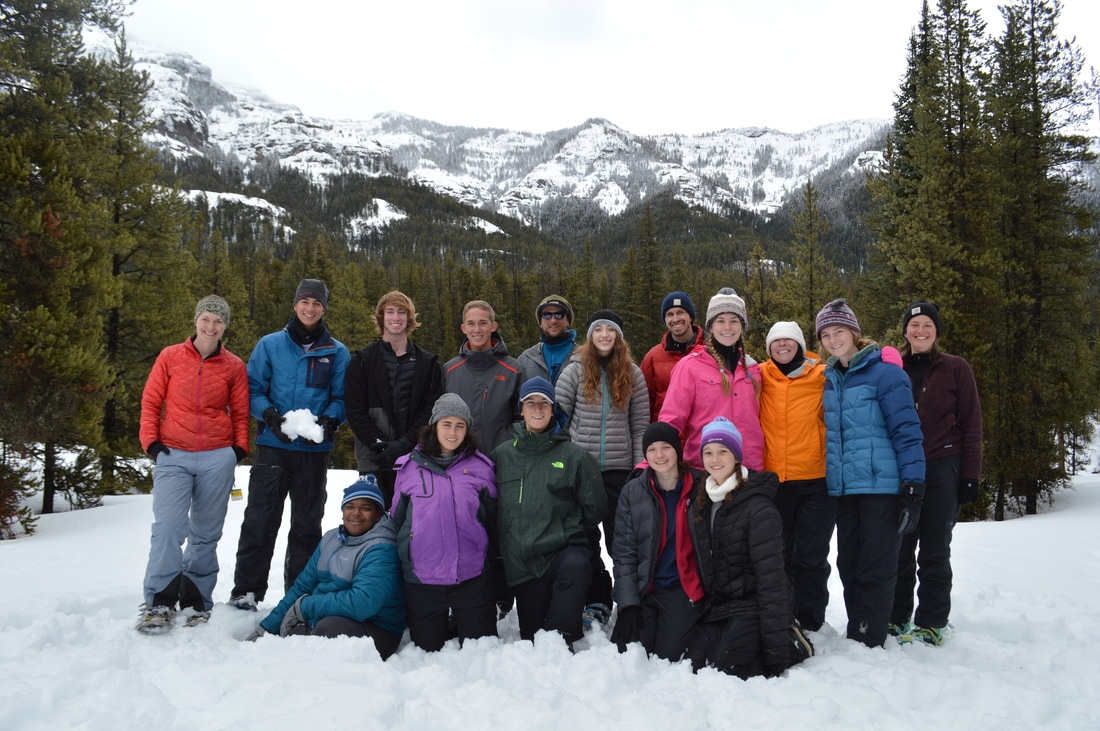
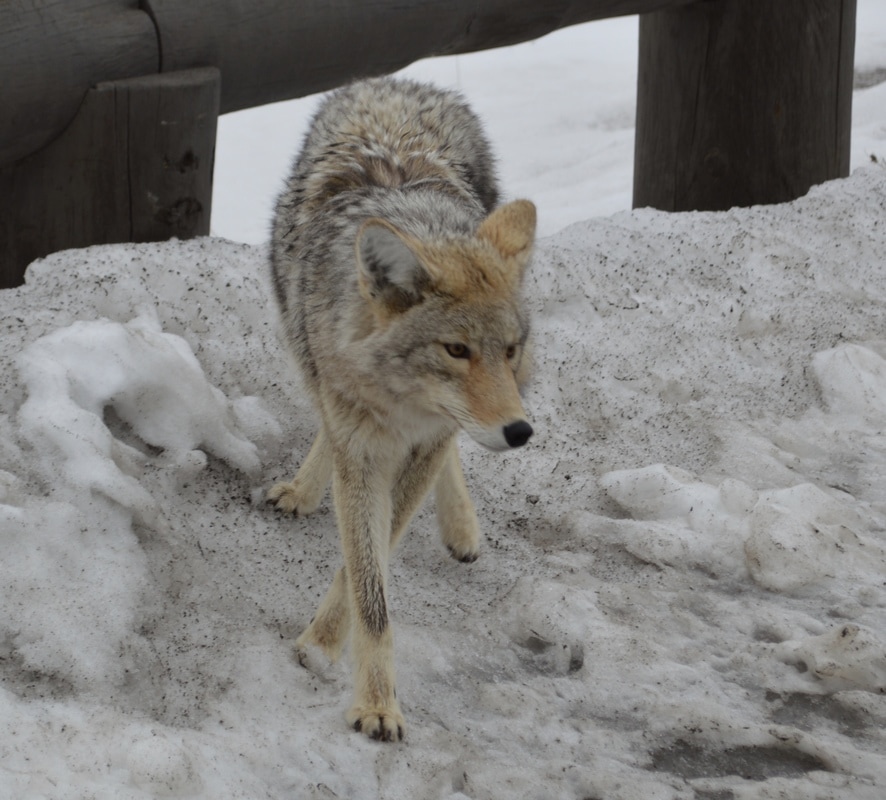
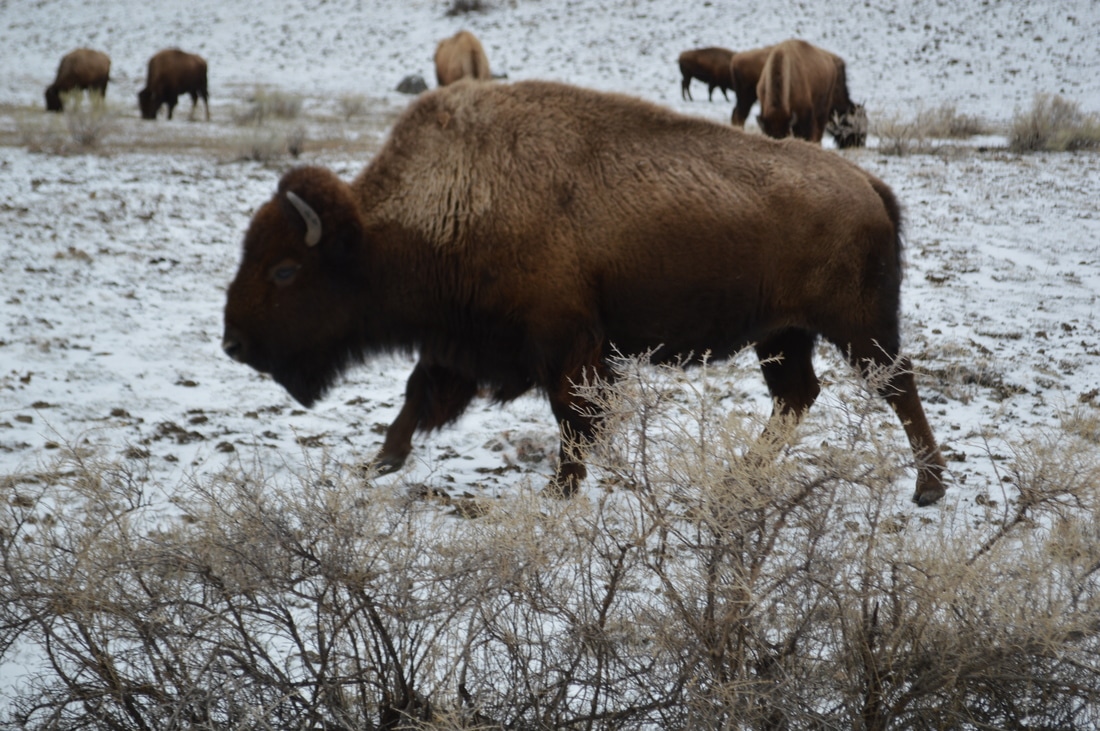
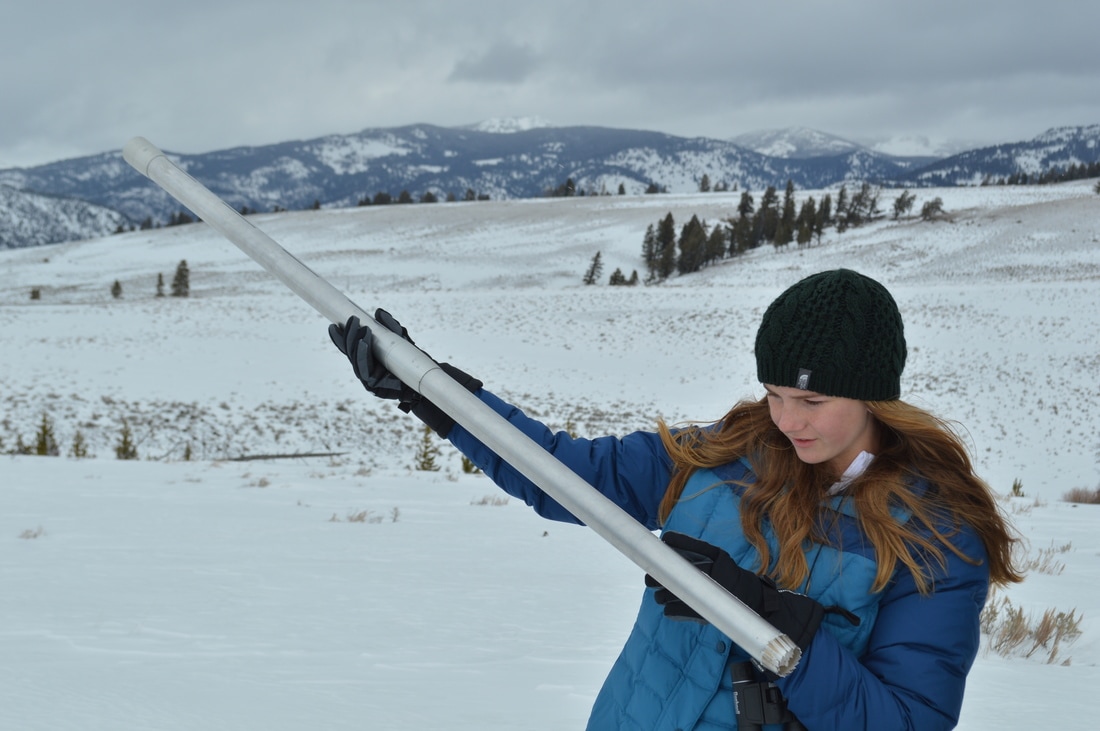
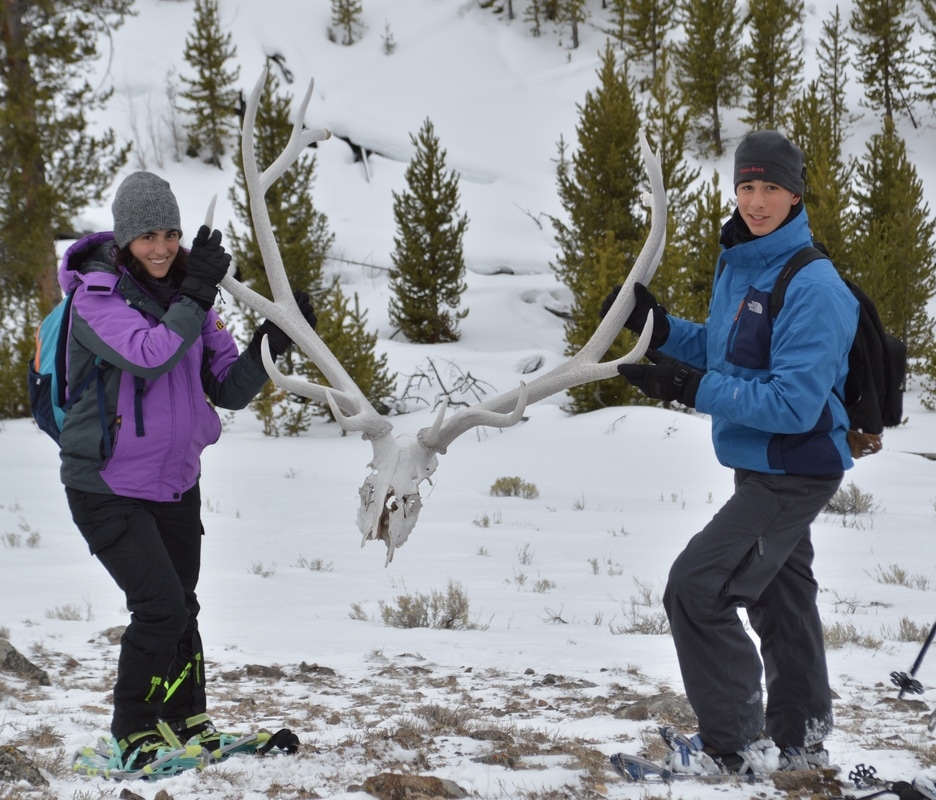
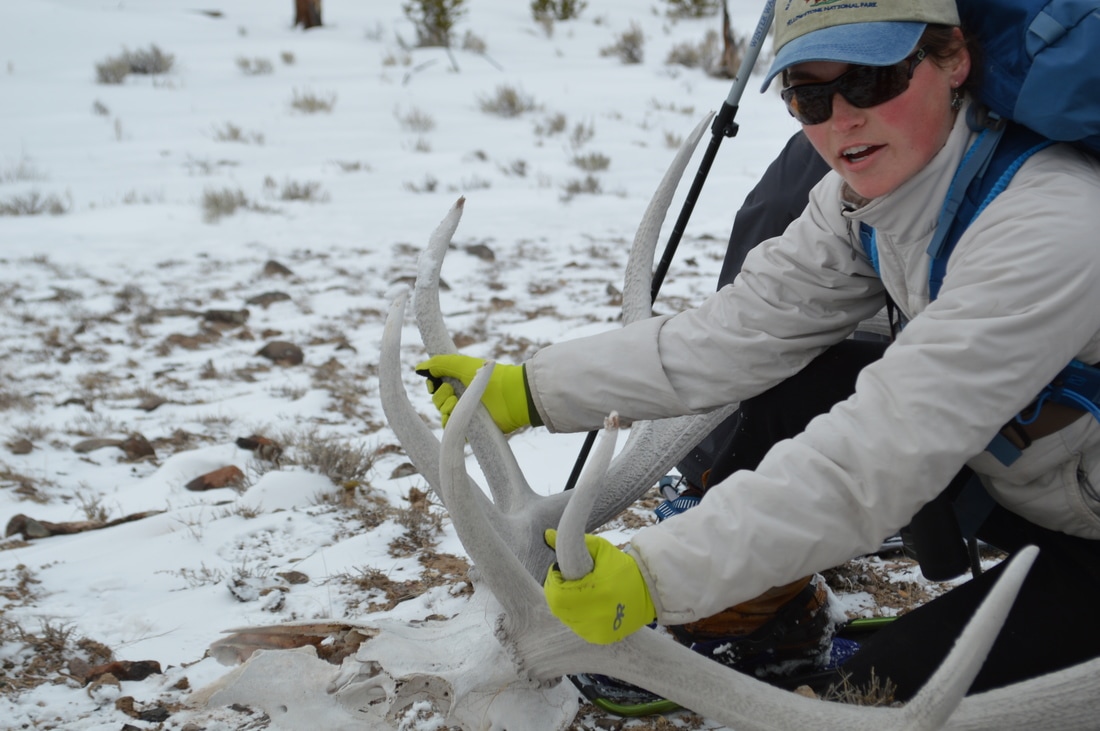
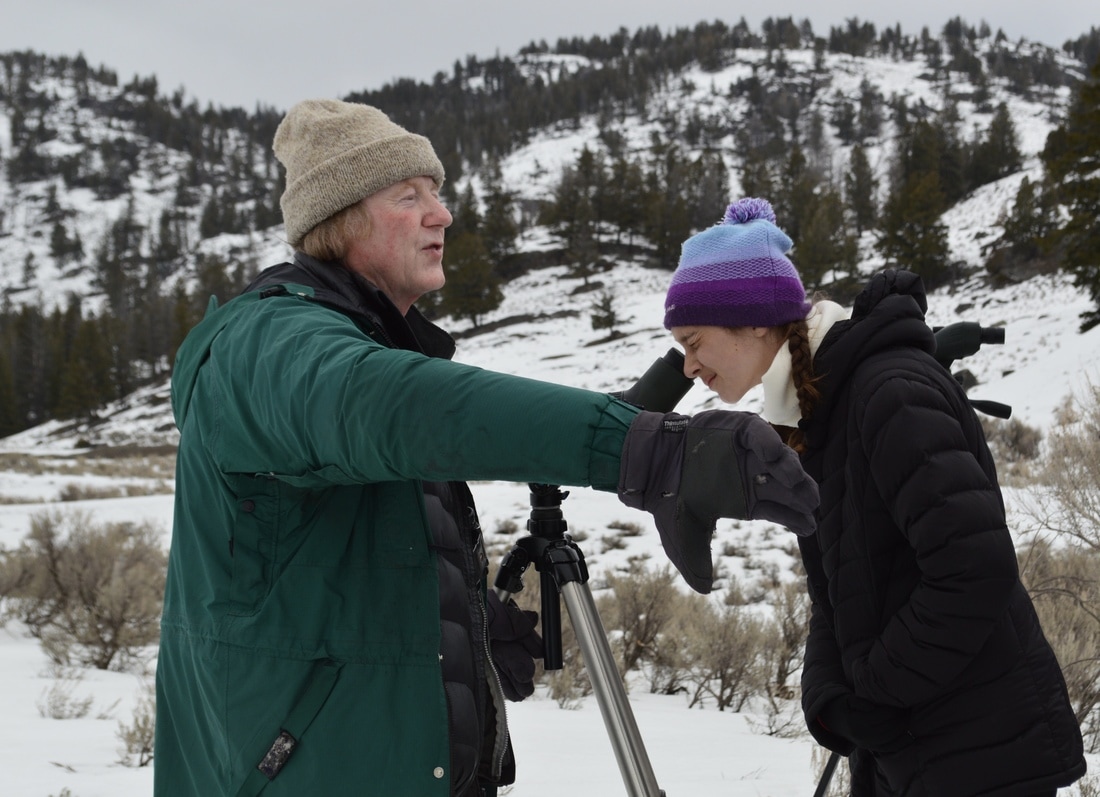
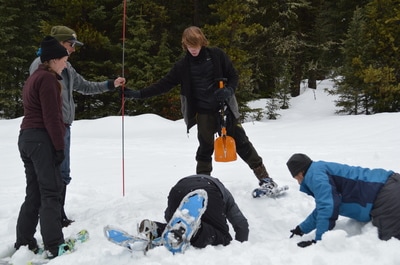
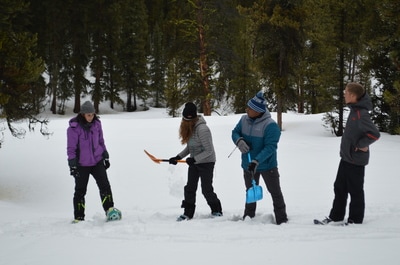
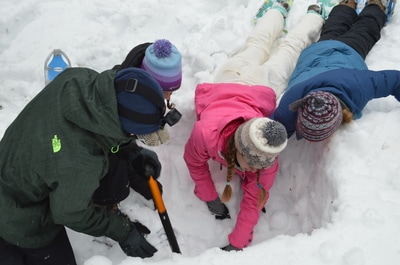
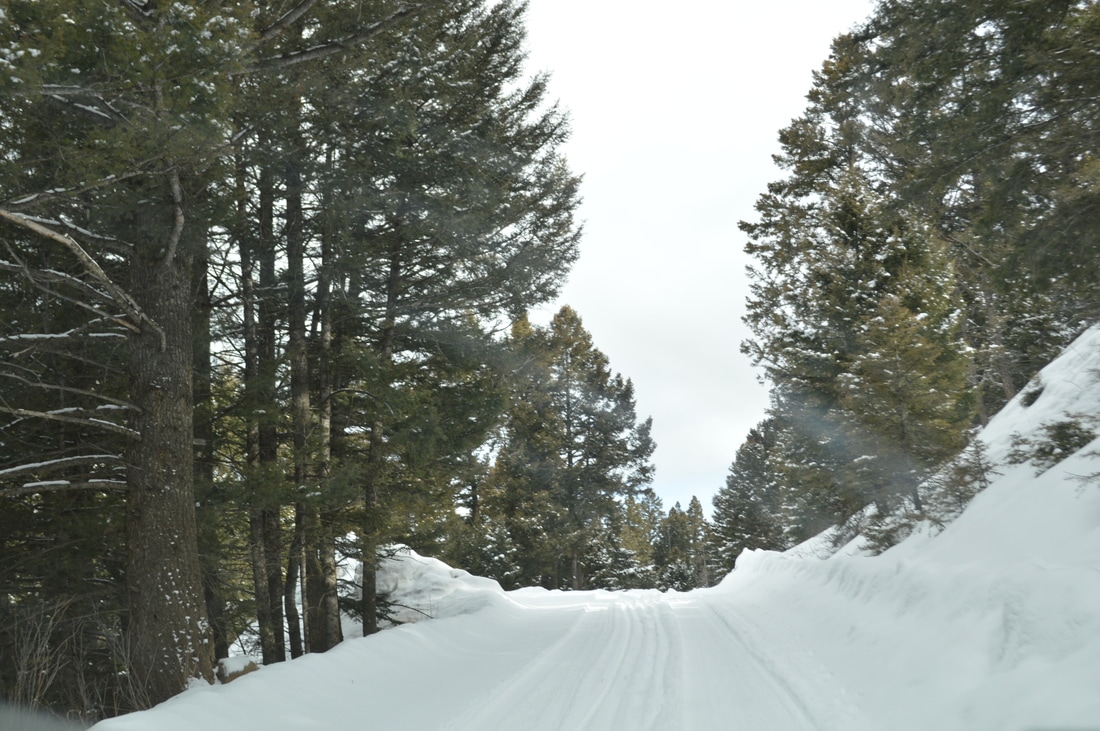
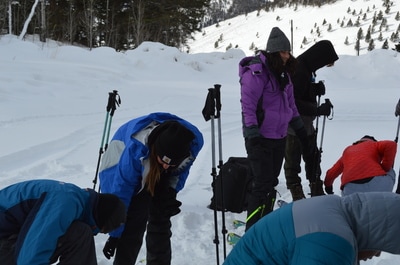
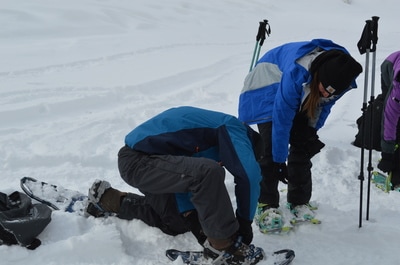
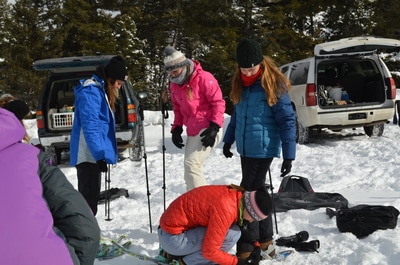
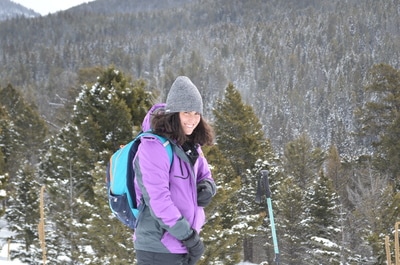
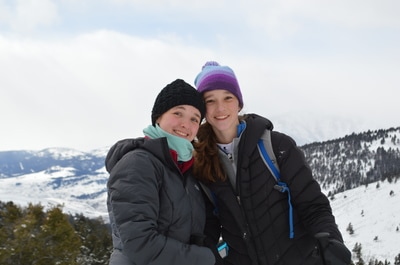
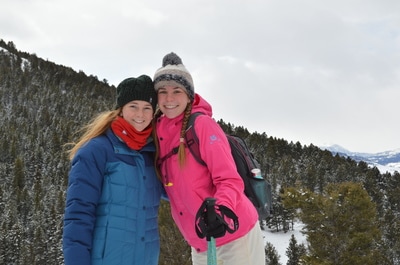
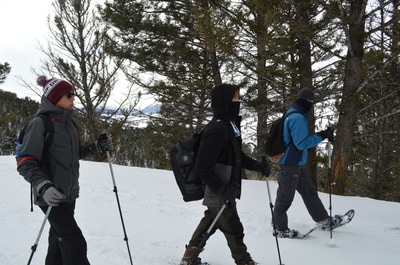
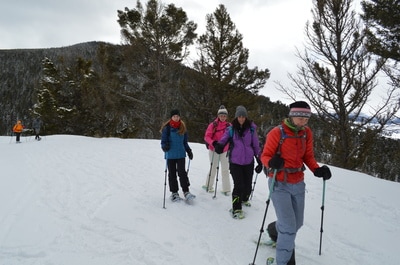
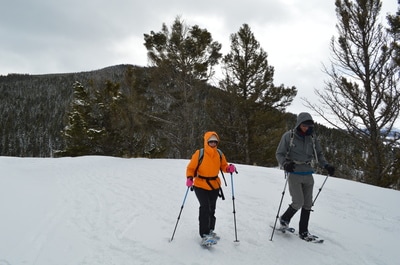
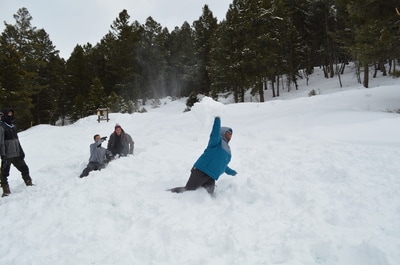
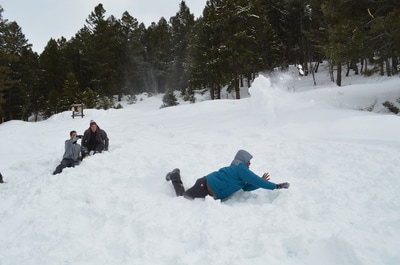
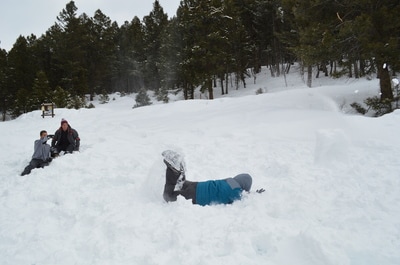
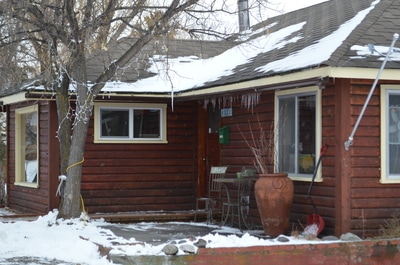
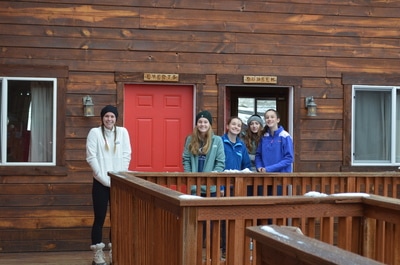
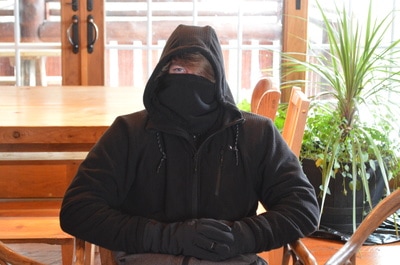
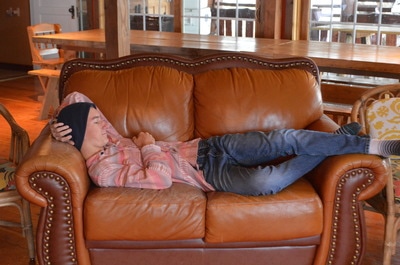
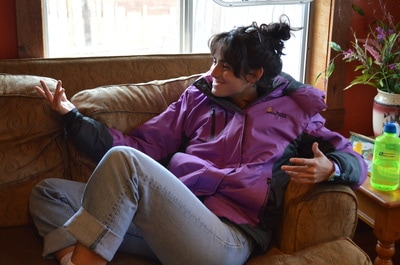
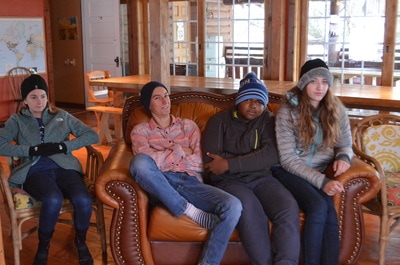
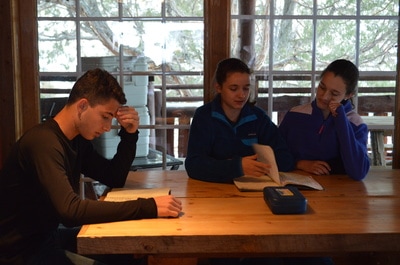
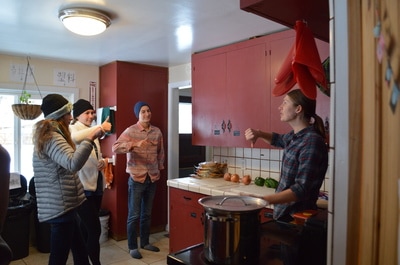
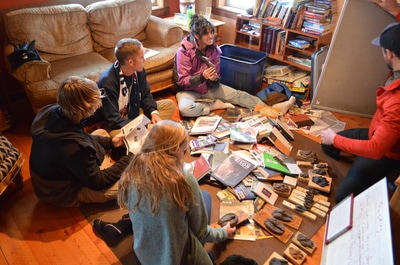
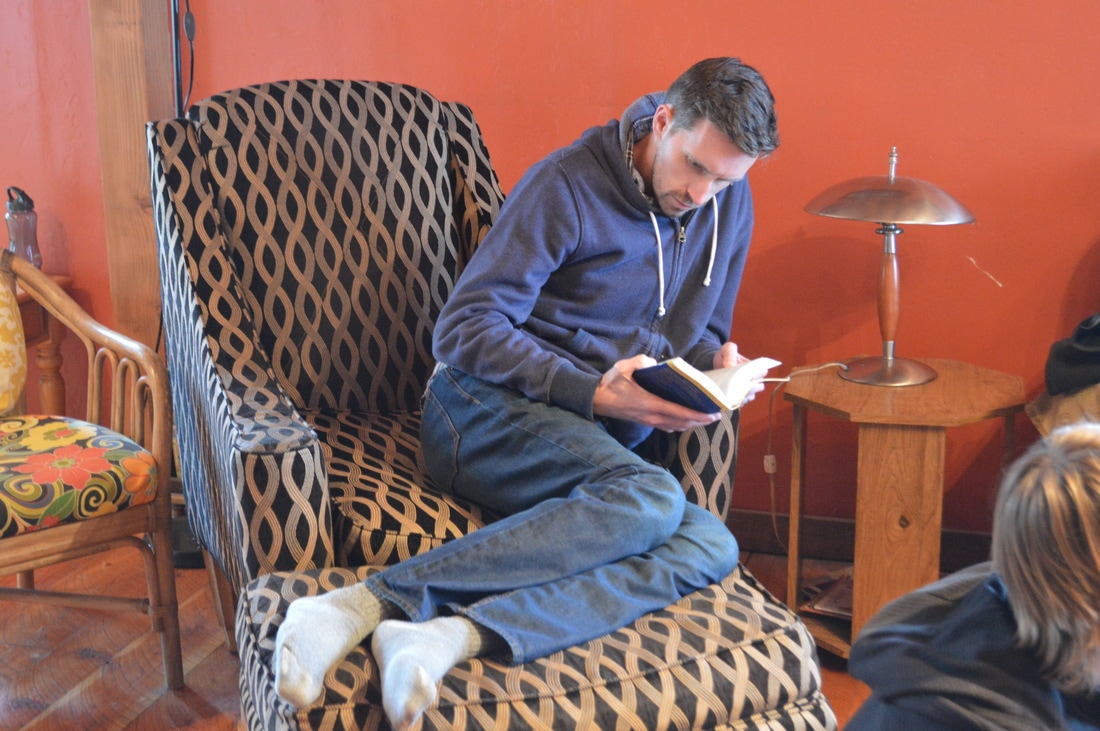
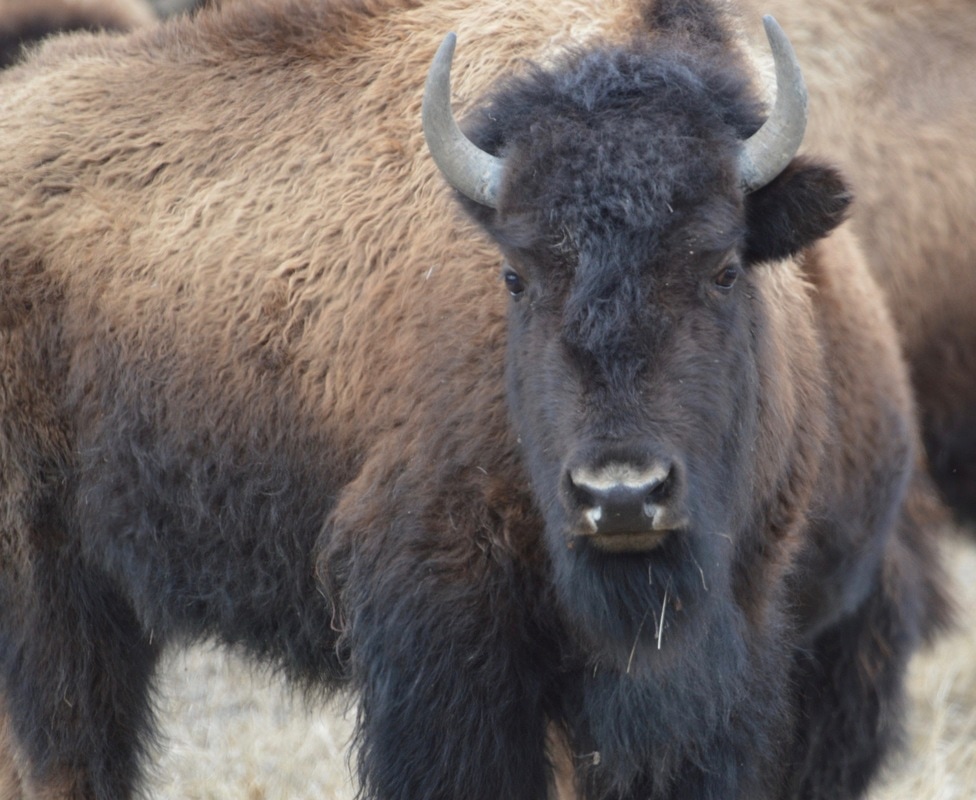

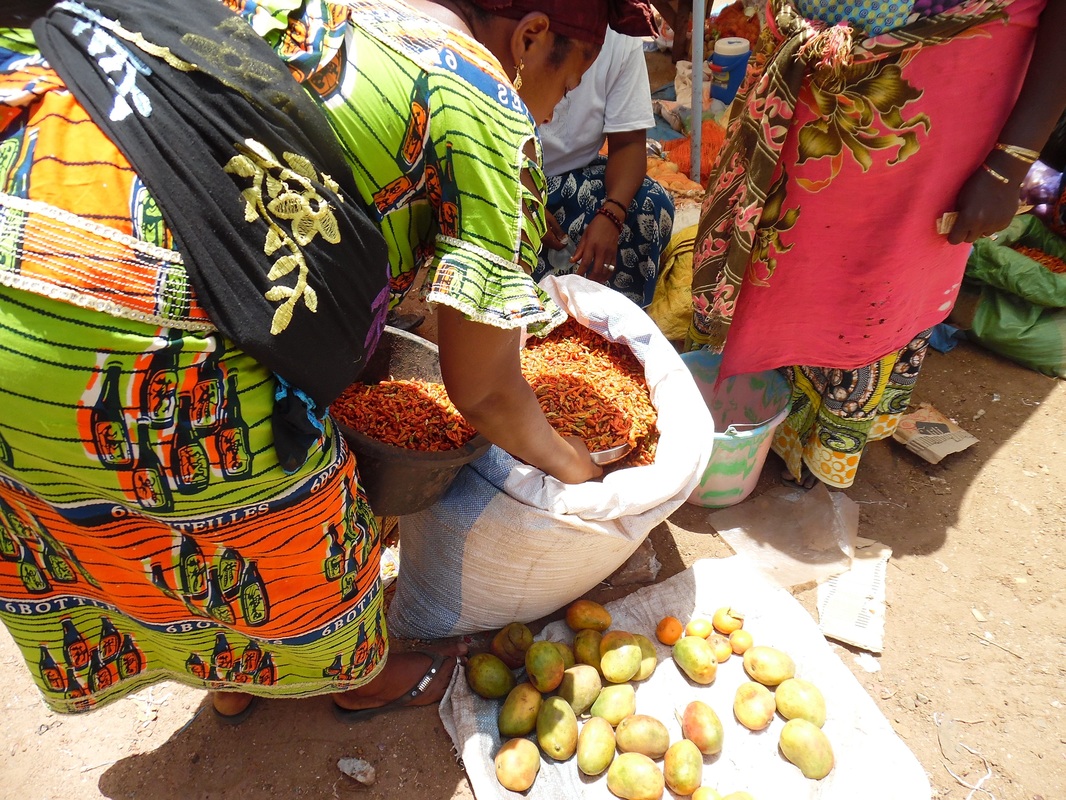
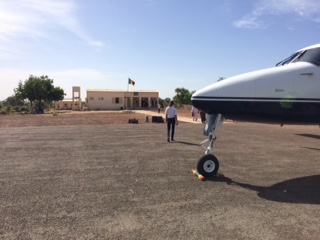
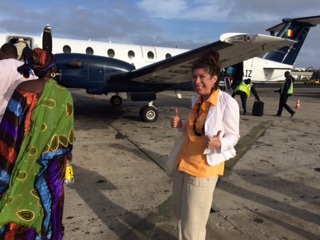
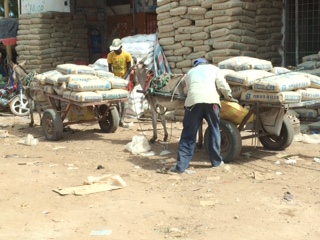
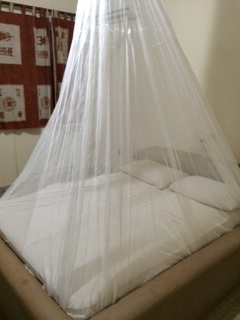
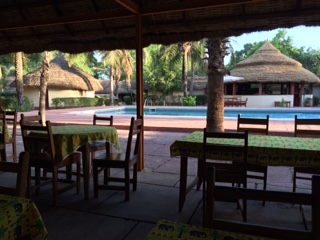
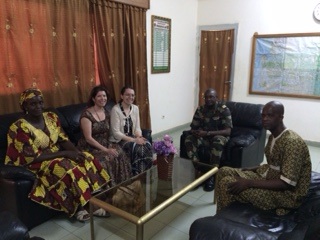
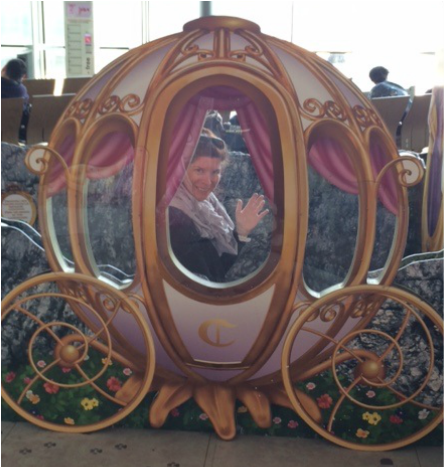
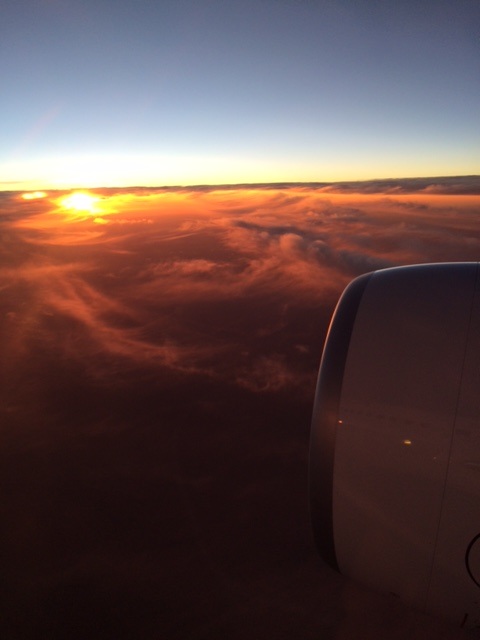
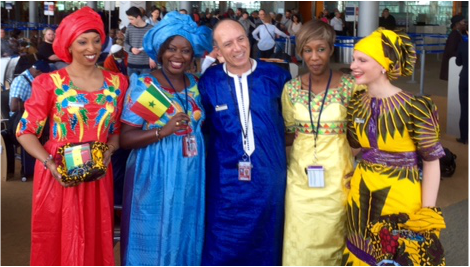
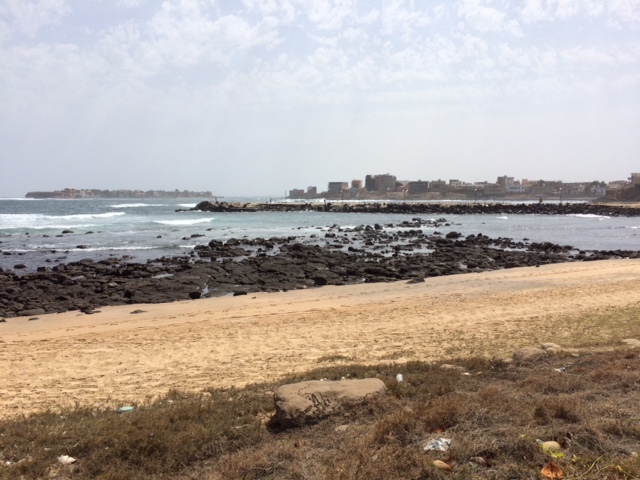
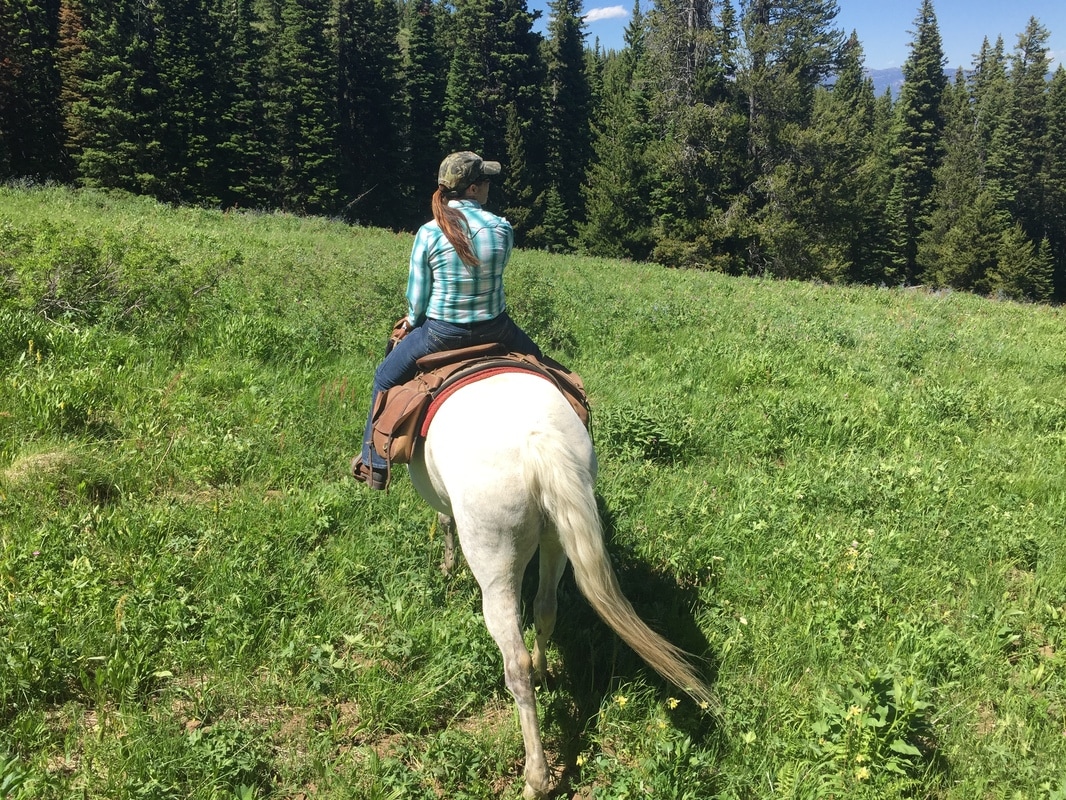
 RSS Feed
RSS Feed